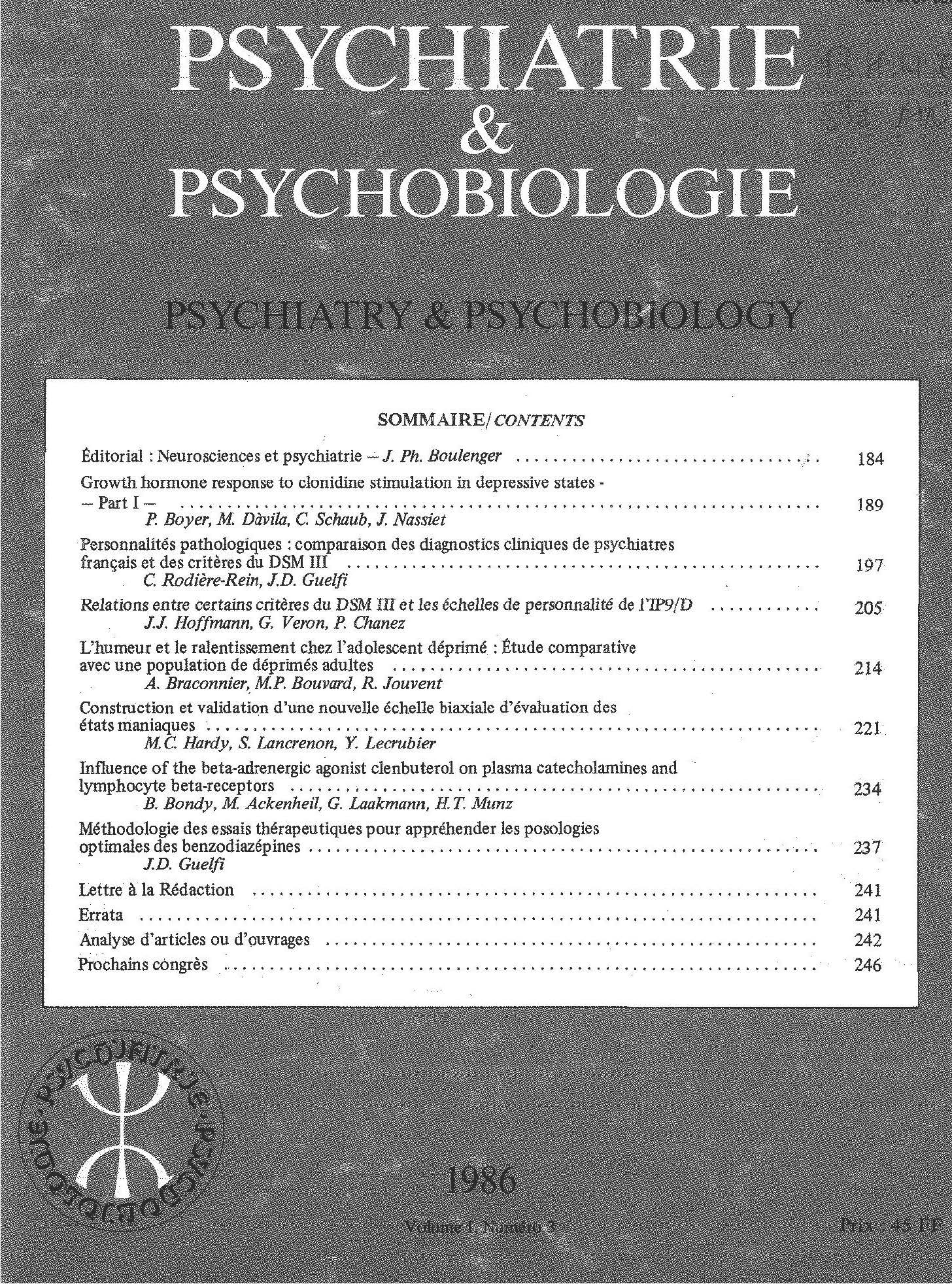Article contents
Travail féminin en milieu hospitalier: un facteur de dépression? Une étude pilote
Published online by Cambridge University Press: 28 April 2020
Résumé
Quarante-cinq femmes, membres du personnel infirmier de l’Assistance publique, ont été interrogées après une de leurs journées de travail. L’entretien, semi-structuré, comprenait 6 questions portant sur la fatigue, les satisfactions, les contrariétés, les entraves au travail normal, les déceptions, la tristesse. Les sentiments négatifs sont majoritaires (82,4%). Ils comportent au premier plan: la fatigue (20,4%), l’includence (21,1%), la solitude (12%), les soucis techniques (9,2%), le sentiment de désorganisation (8,5%). Les sentiments positifs sont rares (8,5%). Les gratifications proviennent des malades (49%) et des collègues (32,7%). Les souhaits, peu exprimés, vont dans le sens d’une meilleure communication avec les supérieurs. L’ensemble de ces éléments évoque un état d’esprit dépressif. Cette situation paraît liée à l’isolement du personnel et au manque de renforcement des tâches. Des solutions sont proposées: information et coordination plus attentives, reconnaissance du travail accompli au sein des équipes.
Summary
Forty-five female members of the nursing staff of the “Assistance publique” were interviewed at the end of a working day. The semistructured interview induded 6 questions about fatigue, satisfactions, annoyances, hindrances in normal work, disappointments and sadness. Negative feelings were predominant (82,4%). These consisted of: fatigue (20,4%), burn-out syndrome (21,1%), loneliness (12%), technical concerns (9,2%), disorganization (8,5%). Positive feelings were unfrequent (8,5%). Gratifications originated from patients (49%) and colleagues (32,7%). Few expressed the wish for better communication with superiors. Taken altogether, these elements evoke a depressed state of mind, linked to staff isolation and lack of reinforcement for the tasks performed. Proposed solutions are to increase information, to pay more attention to the coordination and enhance the recognition for the work accomplished within the team.
Keywords
- Type
- Article original
- Information
- Copyright
- Copyright © European Psychiatric Association 1988
References
Références
- 4
- Cited by



Comments
No Comments have been published for this article.